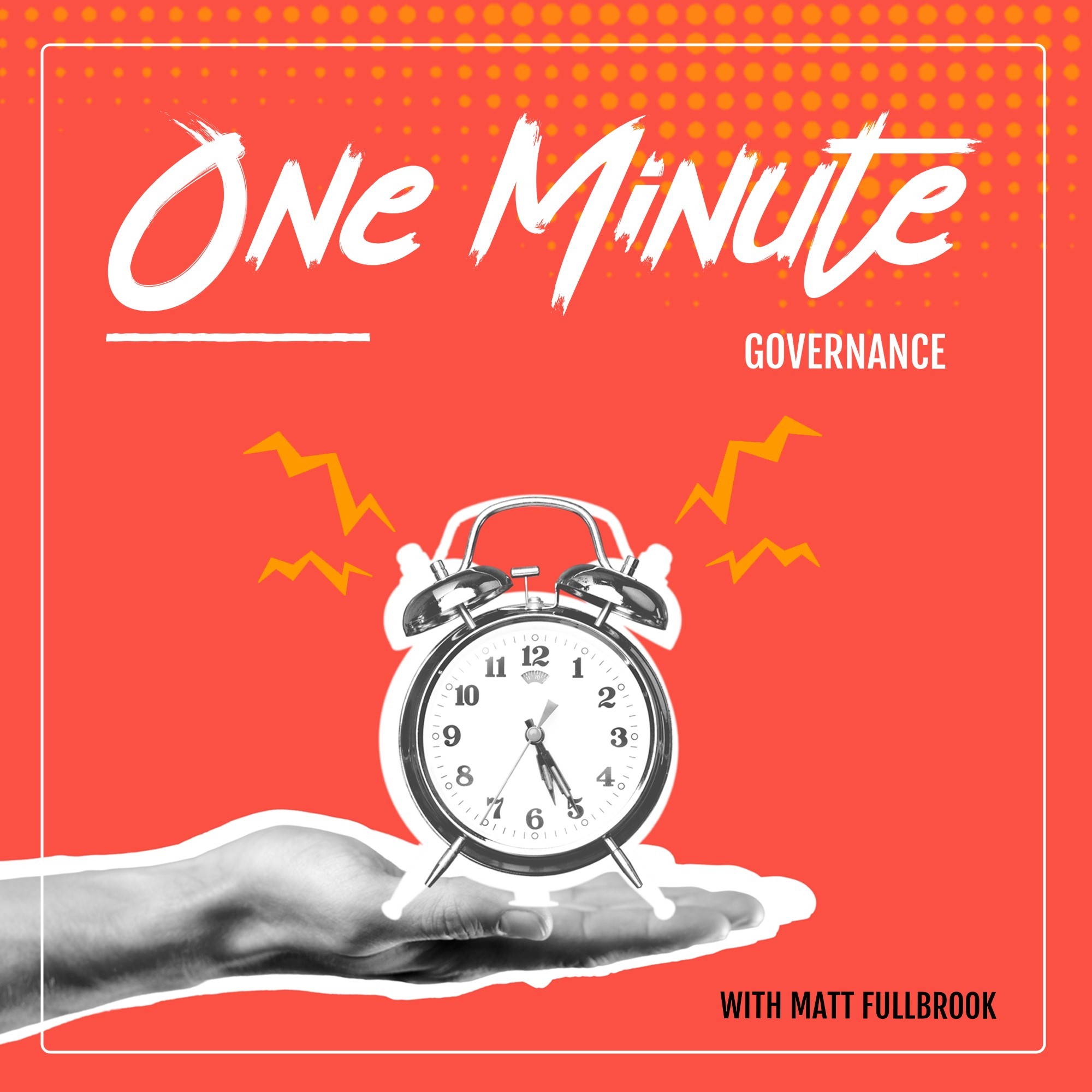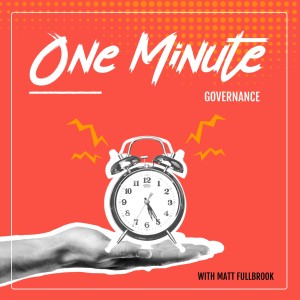
137.7K
Downloads
270
Episodes
Season 5 is live! New episodes every Monday and Thursday. This season, we’re exploring questions that directors need to *answer*. Are you a director, senior executive, investor, or someone who’s just curious about corporate governance? Tune in for insights about how things work inside and outside the boardroom, based on 20 years of experience and interactions with thousands of directors from around the world. Each episode lasts about one minute and will provide you with questions to ask yourself, your board and your management team, designed to optimize the way your organization makes decisions. Matt Fullbrook is a corporate governance researcher, educator and advisor located in Toronto.
Episodes

Thursday Aug 10, 2023
180. A structure which has no relation to reality (Condition #28: corporate model)
Thursday Aug 10, 2023
Thursday Aug 10, 2023
If you’re anything like me, you’re kinda inspired by the idea of good governance as being intentional about all these conditions we’re talking about, but you also find yourself mostly doing the same stuff as always. Or at least you find it hard to break the gravity of your habits and routines. In a lot of boardrooms, one of those habits is to fall back on the excuse of your corporate model as a reason not to try new things. “We’re a huge listed company, it’s just not proper for us to experiment in the boardroom. Or, “we’re a not-for-profit organization, we can’t ask our volunteer directors to try new things or spend their time in new ways.” Or, “we tried something like this before and our regulator didn’t like it, so let’s not try it again even if we think it will make our board way more effective. Or whatever. And it’s true: your corporate model *is* a condition that affects the way you make decisions. It’s also true that every one of those excuses I just gave is both relevant and totally fair enough. BUT, I want to try to convince you that all you need to do here is take those excuses, change the wording a bit, and then suddenly your corporate model becomes a point of curiosity instead of an excuse or constraint. Like this: “We’re a huge listed company, how could our shareholders benefit from a bit more experimentation in the boardroom?” or “We’re a not-for-profit organization. How could we cultivate better conditions for our volunteer directors to thrive despite time and resource scarcity?” Or “We’re really excited to try new things. What would it take for our regulator to be supportive of the stuff we want to try in our boardroom?” Just making excuses and leaving it at that is the opposite of being intentional.

Comments (0)
To leave or reply to comments, please download free Podbean or
No Comments
To leave or reply to comments,
please download free Podbean App.